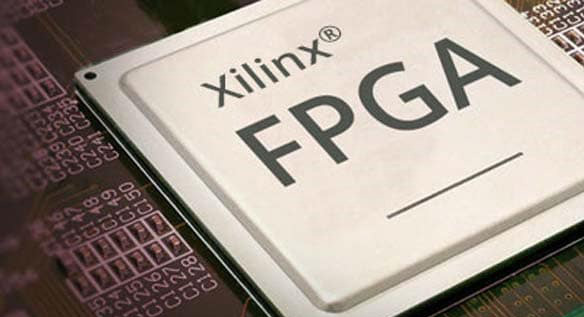
FPGA - The field-programmable gate array, is an integrated circuit that consists of internal hardware blocks with user-programmable interconnects to customize operation for a specific application. The key different from application-specific integrated circuits (ASIC) is the FPGA can be reprogrammed according to the application or functional requirements after manufacturing.
Based on its programmable features, FPGAs have become an ideal choice for many different markets. Xilinx, IBM, Altera are among the best In this files, while the Altera has acquired by Xilinx.
The FPGAs have a wide range of applications. In daily consumption, FPGAs often find usage on products related to audio and vision, such as ion TVs and hard disk recorders. In addition, FPGAs are very suitable for systems that require consistent updates, without the need to purchase new hardware. For example, in automotive applications, even though the product has been sold, FPGA can also help it be updated.
For Data Center, it can design for high-bandwidth, low-latency servers, networks, and storage, enabling higher-value cloud services. FPGAs for industry, science and medical (ISM), for a large number of applications including industrial imaging and surveillance, industrial automation and medical imaging equipment, to achieve higher flexibility, faster time to market and lower incidental engineering Total cost (NRE).
For wired communication, Xilinx FPGAs provide end-to-end solutions for programmable network line card packet processing, framer/MAC, serial backplane and more other applications. For wireless communications, it provides RF, baseband, connection, transmission and network solutions for wireless devices, and can support WCDMA, HSDPA, WiMAX and other standards.
Many applications rely on the parallel execution of identical operations; the ability to configure the FPGA’s CLBs into hundreds or thousands of identical processing blocks has applications in image processing, artificial intelligence (AI), data center hardware accelerators, enterprise networking and automotive advanced driver assistance systems (ADAS).
Other applications of FPGA include aerospace and defense, medical electronics, industrial motor control, scientific instruments, and cybersecurity systems.